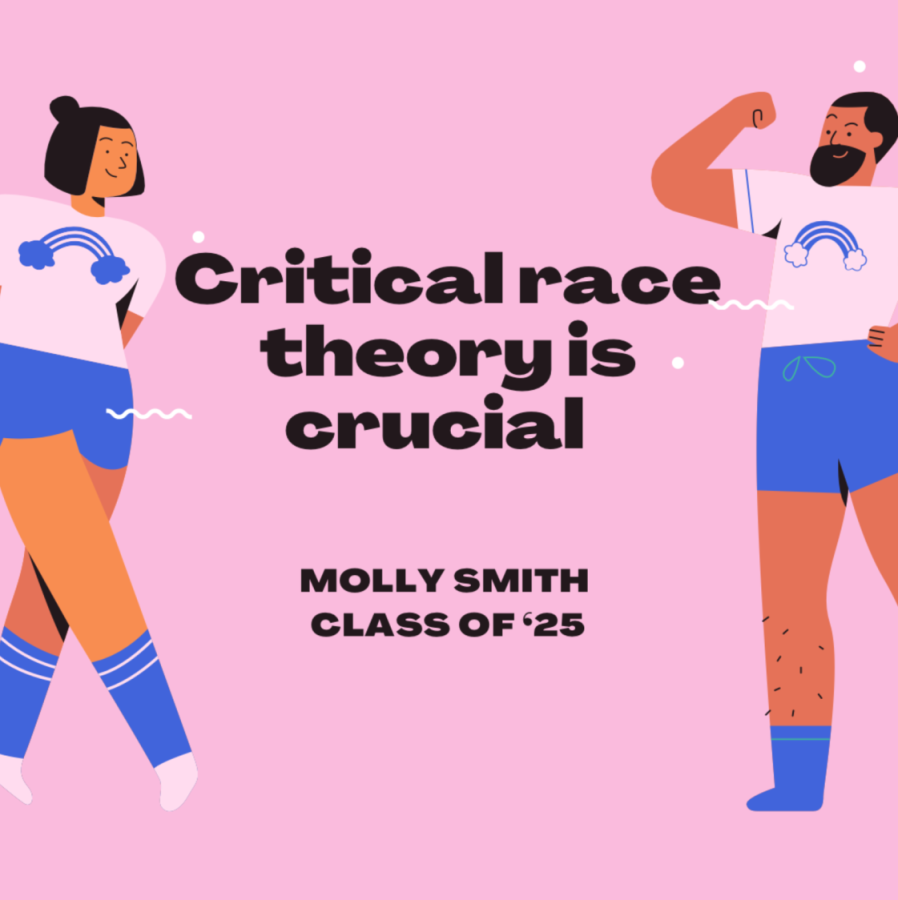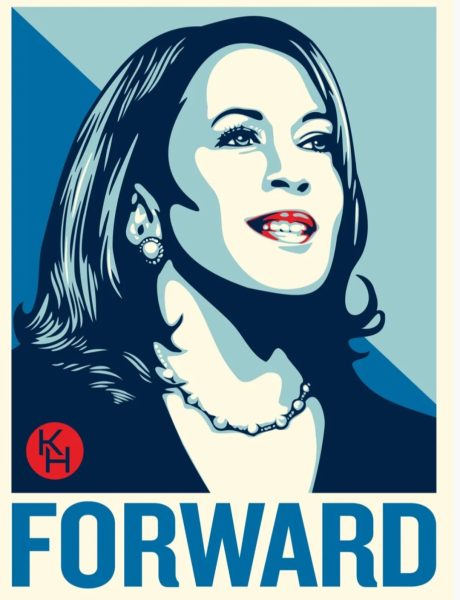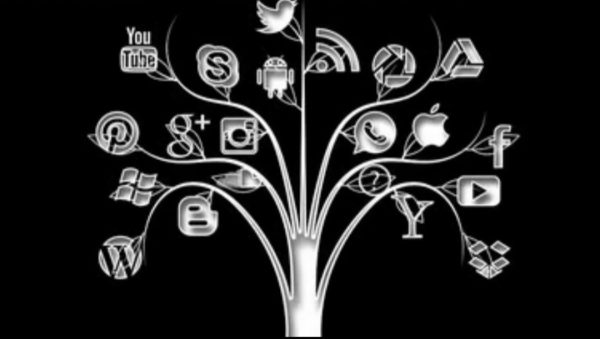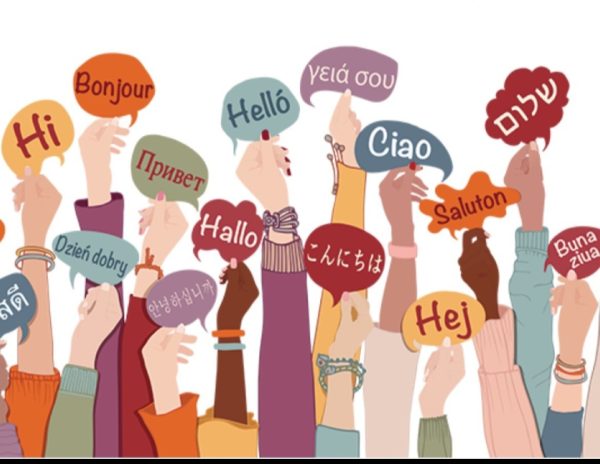Critical race theory is crucial
Should critical race theory be taught in school? Legislators have conflicting things to say all around the country.
Nothing is worse than watching people gain credit for your losses and ideas.
Nothing is worse than the awareness that your skin color could be the reason for your imprisonment or death.
Nothing is worse than a reality where we would be completely ignorant of these topics.
Because of critical race theory, such fear is able to be ignored.
Critical race theory is the exploration of systemic and historical racism. In simpler terms, systems and organizations we know today have histories of oppression towards people of color. History itself is not as clean as some think they know.
Systemic racism is especially visible in police brutality towards the black community. Breonna Taylor was a black woman innocently sleeping during her shooting by police. Tamir Rice was a black boy holding a toy gun as a 12-year-old when police shot him. Daunte Wright was a black man accused of traffic violation and, getting back in his car, was shot by police.
Breonna Taylor died by an officer’s hands in March of 2020. Hankinson, the officer responsible, does not go on trial until February 2022.
Tamir Rice’s death by police occurred in November 2014. The case was closed and the officers were not held legally accountable. Not even nearing 2022.
Daunte Wright was killed by the police in April 2021. The officer responsible is facing a trial in November-December 2021.
Then you have Kyle Rittenhouse. A white man who literally shot three people.
This shooting took place in August 2020; the recent trial in November 2021 found him “not guilty.”
Instead of asking for others to be thankful, let’s really let it sink in. Why did it take this long for these trials to occur?
The worst part lies in racism’s expansion. The Asian community is disproportionately impacted by hate speech amidst Covid. Native Americans watch their people’s land get credited to a white man in history class. Latina women get paid a little over 50% less than white men.
Why are white people allowed the space to severely screw up? Why aren’t people of color given the space to live?
The answer sucks.
An individual can be racist, but racism expands and is baked into systems. It has been for as long as textbooks can cover.
“Ignorance is bliss” can never apply here. And that is why critical race theory is so important.
Mutually agreeable enough, right?
You would really think so.
There are states in America looking to outlaw this concept. Wisconsin and Missouri are two that have already passed legislation. It is no secret that they wish for minimal involvement, Representative Grothman of Wisconsin especially. He introduced legislation that would censor D.C. educators. More specifically, censorship from speaking of racism.
Not long after came Representative Hartzler of Missouri. She proposed the banning of critical race theory in Department of Defense Education Activity-operated schools.
You have Arkansas prohibiting social justice teachings. You have Missouri trying to ban the 1619 project. This is the discovery that 1619 was when the first enslaved Africans arrived on Virginia soil. This is where credit is given.
The censorship of educators and the banning of this theory run rampant; most often, by Republicans.
This is because some Republicans simply do not believe in systemic racism. They believe in the history we knew before critical race theory.
Texan Representative Toth is one example of a republican with this belief. “There’s a cry now to say that there is institutional racism everywhere-all aspects of our economy, of our school system, our education system, of the family unit. It’s all based on white structure.” Toth felt bold enough in this statement to broadcast it to NBC News.
Toth’s statement is easily debunkable.
Especially when you have Ruby Bridges, a woman alive to tell her stories of oppression during the 1960s. She told NPR that “[Making friends] did not come easy because I heard kids, there were days when I would go into this coat closet to hang up my coat and I could hear kids laughing and talking, but I never saw them. Later on, I came to realize that they were being hidden from me in another classroom. There were some white parents who actually crossed that picket line and brought their kids into school. But the principal who was part of the opposition, she would hide them.” A famous quote of hers reads, “Kids know nothing about racism, they’re taught that by adults.”
Historian Julian Hayter does an NPR interview stating, “I think what we’ve seen in the telling of American history for most of the 20th century is that certain people’s history has been erased. If you look at a history textbook from the mid-20th century, you’d be hard-pressed to find people of color, women and even poor white folks. For that matter.” Hayter goes on to say: “Ultimately, I think it asks people to question how racism isn’t necessarily an individual act of malice, but it’s been institutionalized, especially in terms of public policy and private action. There can be no telling of the American story or a complete telling of the American story without race.”
When we see videos of white murderers on trial who are able to go home without sentencing it becomes almost desensitizing at this point. Especially when a year prior, George Floyd got accused of carrying faulted money and was not tried before getting suffocated.
Hayter is not the only historian to highlight the importance of critical race theory. In the words of Tuscaloosa News, “Some U.S. historians elevate race in a theory called critical race theory to be THE dominant factor in American life.”
Like most things in life, who you trust is your decision: a person whose job is to explore historical roots, or one who governs based on these explorations?
Toth’s ignorance allows for Americans to really question not only those representing their biggest state, but the people who may be representing any state.
Is our legislative branch unwilling to listen outside of schooling? Do they govern with what is easiest with no concern for the governed?
Toth’s statement is built on the white-washing and supremacy that critical race theory truly could have fixed.
The same is true for a variety of Americans who have never had the chance to learn uncensored history content.
With representatives willing to relearn and teachers willing to implement, our nation will see progress and inclusion.







